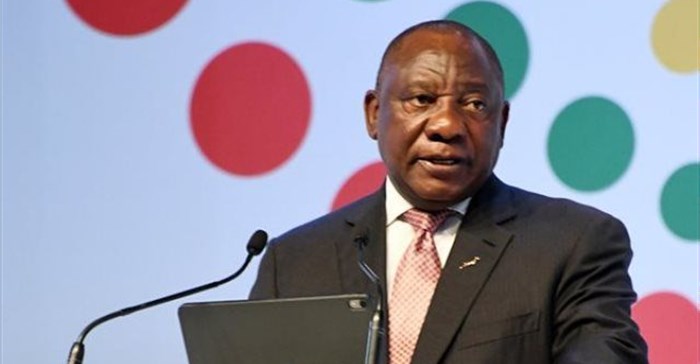
Top stories






More news


ESG & Sustainability
Redisa calls on govt to fix South Africa’s “broken” waste management system



























In the year since 31 local and international businesses announce investment projects worth R300bn at the inaugral summit, eight have been realised and completed.
“Factories have either been built or facilities have been improved and workers have been employed... Seventeen [projects] are in construction or at implementation stage. In total, this represents R238bn of investment, which was announced last year. This is a phenomenal achievement from those who stood here and made those announcements," the president said.
The President said he looked forward to several companies making pledges today to invest in South Africa by setting up greenfield operations or expanding their existing businesses.
He said it is pleasing to see that investors continue to see South Africa as a viable and profitable investment opportunity with much to offer. He credited the business confidence to South Africa’s sturdy legal foundation, especially with regards to the independence of the judiciary and laws governing commerce, taxation, maritime matters, competition, intellectual property, property rights and other basic human rights.
With the country not being spared from the effects of the global economic downturn, the president said South Africa would continue to reach out to social partners to forge a new compact for growth and development.
Ramaphosa said since last year’s conference, South Africa has worked collectively to implement policy reforms to create certainty, consistency and predictability for investors and citizens.
“We are on a path of removing impediments and constraints to inclusive growth. We have embarked on a path that is illuminated by policy consistency and regulatory certainty, fiscal responsibility, and decisive interventions to stimulate economic activity,” he said.
Central to efforts to ignite growth and create jobs is an ambitious execution-oriented industrial strategy founded on partnerships between government, labour and industry. “It prioritises growth in important sectors such as automotive, clothing and textiles, gas, chemicals and plastics, tourism, renewable energy, oceans economy, agriculture, mining and beneficiation, the digital economy and the high-tech industries,” the president said.
Master plans for each of these sectors are expected to ensure that infrastructure, skills, incentives and other resources are directed towards where they have the greatest impact. This included identifying special economic zones as platforms of attracting investors and enhancing economic growth. Government has set up 10 of these zones across the country for investors to produce and export value-added products. Investors are offered a preferential corporate tax regime, employee tax incentives, favourable customs regulations and support for capital investment and training.
Rapid industrialisation is critical if government is to reap the benefits of the African Continental Free Trade Area, which entered its implementation phase in July this year. The agreement promises to fundamentally reshape African economies, as it is expected to improve access to existing markets and lead to the creation of new ones, he said.
“Steadily but surely, we are making South Africa a more competitive destination for investment by reducing the cost and improving the ease of doing business,” he said.
As part of attracting skilled professionals and growing tourism, government has prioritised immigration reform and changes to the visa regime. "More countries have been added to the list of visa-free nations for inward tourism, the requirements on unabridged birth certificates for young tourists have been abolished, and we are piloting a new eVisa portal later this month," he said.
“Through the expanding network of Invest SA’s One-Stop Shops, we are working to remove bureaucratic and administrative hurdles to investment, providing new entrants with a single contact point for licensing and regulatory compliance.”
“We have set out a clear process with timelines for the restructuring of power utility Eskom into three separate entities for transmission, generation and distribution,” the president said.
An immediate priority is the appointment of the vacant position of CEO and strengthening governance through revamping the board. “The other key priority is to deal with Eskom’s debt as part of the restructuring process and taking urgent measures to significantly improve operations, cut costs, and increase revenue,” he said.